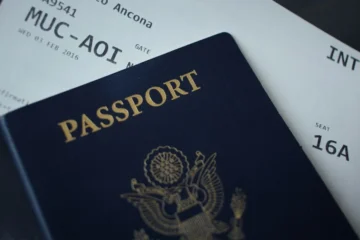Belgium is tightening its family reunification rules from August 18, 2025, introducing higher financial requirements, new age thresholds, and stricter residence conditions. These changes aim to manage immigration more effectively, ensure sponsors can support their family members, and align applications with long-term residency expectations. While the transition period provides some relief for pending applications, applicants will need to adjust to the new standards to successfully reunite with loved ones.
Key Takeaways
Why Belgium Is Updating Family Reunification Rules in 2025
Belgium’s decision to revise family reunification rules stems from multiple motivations. The government is focusing on ensuring that sponsors have the financial capacity to support incoming family members, thereby reducing the likelihood of dependence on public assistance. This change is part of a broader effort to manage immigration more effectively and maintain social stability.
Another consideration is alignment with long-term residency requirements. By introducing stricter rules, the government seeks to ensure that applicants demonstrate a genuine commitment to life in Belgium. The new criteria also discourage premature reunification applications from individuals who have not yet established sufficient ties to the country.
Also Read: Can You Get a Belgium Work Permit in Just 15 Days Now?
The reform reflects Belgium’s approach to balancing humanitarian obligations with practical economic considerations. While family reunification remains a key part of immigration policy, the authorities are emphasizing that sponsors must demonstrate readiness—both financially and socially—to integrate family members successfully. The changes also help streamline administrative processes, allowing authorities to prioritize cases that meet the updated thresholds.
Higher Minimum Income Requirements for Sponsors
One of the most significant changes is the increased minimum net monthly income for sponsors. Starting August 18, 2025, sponsors must earn at least €2,323.10 per month. For each additional dependent being reunited, the required income rises by 10%. This increase ensures that sponsors can cover living expenses for themselves and their family members without relying on government support.
The adjustment from the previous €2,131.28 requirement is substantial for many potential sponsors. Families with multiple dependents will find that the financial bar has been raised considerably, requiring careful planning and verification of income sources. Sponsors will need to provide detailed documentation, including employment contracts, tax returns, and proof of ongoing earnings, to satisfy the authorities.
This change may also influence the timing of reunification applications. Some sponsors might delay applications until their financial situation meets the new threshold, while others may explore ways to increase their net income. The 10% increase per dependent particularly affects larger families, making it essential for applicants to calculate income requirements accurately before applying.
New Age Requirement for Sponsors
Another notable update is the minimum age requirement for sponsors seeking to reunite with a spouse or partner. The threshold has been raised from 18 to 21 years. This change is intended to ensure that sponsors are more mature and financially stable, which increases the likelihood of successful integration and support for family members.

Younger applicants who previously qualified under the lower age limit will now face restrictions, requiring them to wait until they meet the new age threshold. This adjustment emphasizes responsibility and preparedness, reinforcing the principle that family reunification should only occur when sponsors can provide a stable environment.
The age requirement also aligns with broader EU practices, where maturity and financial independence are often prerequisites for family reunification. By setting a clear age minimum, Belgium ensures that applicants understand the expectations and responsibilities associated with sponsoring family members.
Residence Duration Requirements for Certain Residents
Belgium has introduced stricter residence duration requirements for individuals holding subsidiary protection, temporary residence, or even unlimited residence permits. These individuals must now reside in Belgium for at least two years before applying for family reunification.
The two-year residency rule applies to most cases, but exceptions exist for special circumstances, such as urgent humanitarian reasons or minors. Authorities expect applicants to provide evidence of continuous residence, such as rental agreements, employment contracts, or utility bills, to demonstrate that the requirement has been met.
This measure is designed to encourage long-term integration of residents before family members join them. It ensures that sponsors are familiar with Belgian society, employment markets, and legal obligations. By requiring a minimum residence period, the government can better assess the ability of applicants to provide a stable environment for incoming family members.
Transition Period and Applications Under Old Rules
Belgium has established a transition period to accommodate pending applications. Applications submitted before August 18, 2025, will generally be processed under the previous rules. Some applications submitted shortly after this date may also fall under the old framework, depending on individual circumstances and timing.
This transitional arrangement provides temporary relief for applicants who may not meet the new financial, age, or residence criteria. It also allows authorities to manage the shift to stricter rules without disrupting ongoing family reunification cases. Applicants are encouraged to verify the status of their application and, if necessary, consult with immigration professionals to determine which rules apply to their situation.
Also Read: Looking to Work in Belgium? These 81 Jobs Can Get You a Visa Faster in 2025
The transition period emphasizes the importance of timely and accurate application submission. Sponsors should ensure all required documentation is complete, whether applying under the old or new rules, to prevent delays or rejection. Early preparation and awareness of deadlines are key to a smooth reunification process.
What These Changes Mean for Applicants and Families
The 2025 changes will have a notable impact on families seeking reunification in Belgium. Potential sponsors must now meet higher financial and age requirements, while certain residents must demonstrate two years of continuous residence. These adjustments may create challenges for some applicants, particularly younger sponsors or those with multiple dependents.
On the positive side, the stricter criteria encourage preparedness and ensure that families are better supported upon reunification. Sponsors who meet the requirements can be more confident in providing a stable environment, which benefits both the incoming family members and Belgian society.

Applicants should focus on thorough preparation, including calculating income requirements accurately, documenting residence, and confirming eligibility before submission. Consulting with immigration advisors or legal experts can help navigate the stricter rules, reduce errors, and improve the likelihood of a successful application.
Ultimately, while the new rules introduce additional hurdles, they reflect Belgium’s commitment to responsible immigration management. Families who plan carefully, meet the financial and residency requirements, and submit complete applications will still be able to reunite successfully, benefiting from a process that emphasizes stability and integration.
Reference: https://emnbelgium.be/news/belgium-applies-new-family-reunification-rules





